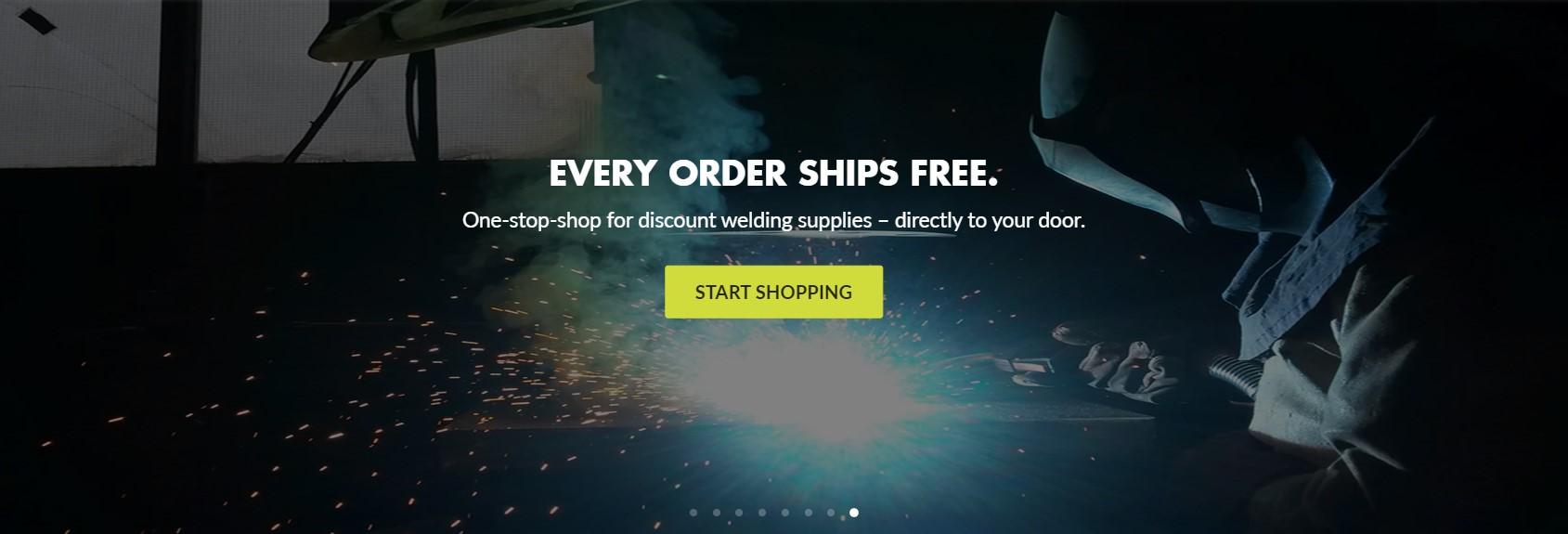If you're planning to tackle some DIY home improvement projects involving welding, having the right welding supplies is essential for ensuring your projects are safe and successful. Here are the best welding supplies for DIY home improvement projects:
Welding Machine: The type of welding machine you choose depends on the welding you'll be doing. MIG welding is popular for DIY home improvement projects because it's easy to learn and provides a clean weld. Stick welding is also a good option for DIY projects because it's versatile and can be used on various metals.
Welding Wire: Choose welding wire that's appropriate for the type of metal you'll be welding. You'll likely be working with mild steel for DIY projects, so choose a mild steel wire. If you are welding aluminum, choose an aluminum wire.
Welding Gas: If using a MIG welder, you'll need shielding gas to protect the weld from atmospheric contamination. A mix of argon and carbon dioxide is popular for welding mild steel.
Welding Consumables: Welding consumables such as contact tips and nozzles must be replaced periodically. Choose consumables that are compatible with your welding machine and wire.
Welding Safety Gear: Welding can be dangerous, so it's important to wear appropriate safety gear. A welding helmet, gloves, and jacket are essential, as well as safety glasses or goggles to protect your eyes from debris.
Welding Clamps: Welding clamps are useful for holding metal in place while welding. Choose strong enough clamps to hold the metal securely, but they won't damage it.
Welding Filler Metals: Filler metals fill the gaps between two pieces of metal being welded together. Choose a filler metal that's compatible with your welding machine and wire.
Welding Table: A welding table provides a stable work surface and prevents sparks and debris from damaging the floor or workbench. Look for a table that's large enough to accommodate the size of the metal you'll be welding and has a fire-resistant surface.
Welding Electrodes: If you're using a stick welder, you'll need welding electrodes to create an arc that melts and joins the metal. Choose electrodes that are compatible with the type of metal you're working with and the thickness of the metal.
Welding Pliers: Welding pliers are useful for cutting and manipulating metal during welding. Choose pliers with a comfortable grip and tools like wire cutters and nozzle cleaners.
Welding Helmet: When choosing a welding helmet for DIY projects, consider a helmet with an auto-darkening feature. It allows the lens to automatically darken when you strike an arc, so you can clearly see your workpiece without lifting the helmet.
Welding Gloves: Choose welding gloves that are heat-resistant and thick enough to protect your hands from sparks and debris. Look for gloves with a comfortable fit and reinforced stitching to ensure durability.
Welding Jacket: A welding jacket protects your arms and torso from sparks and heat. Look for a jacket made from a fire-resistant material such as leather or cotton that has a comfortable fit.
Welding Gas Regulator: If you're using a MIG welder, you'll need a welding gas regulator to control shielding gas flow. Choose a regulator compatible with the type of gas you're using and has a reliable pressure gauge.
Welding Wire Feeder: A wire feeder is an accessory that attaches to a MIG welder and feeds the welding wire into the weld pool. Choose a wire feeder that's compatible with your welding machine and wire.
Welding Angle Clamps: Welding angle clamps are useful for holding metal at a specific angle during welding. Choose strong enough clamps to hold the metal securely, but they won't damage it.
Welding Magnet: Welding magnets are useful for holding metal in place during welding. Choose magnets that are strong enough to hold the metal securely but won't damage the metal.
Welding Chipping Hammer: A chipping hammer is useful for removing slag and debris from the weld after it has cooled. Choose a hammer with a comfortable grip and a chisel end for removing slag.
With the right welding supplies in welding supply store and proper technique, you can confidently complete your DIY home improvement projects. When choosing welding supplies for DIY home improvement projects, it's important to consider the specific needs of your project. If you need help deciding which supplies to choose, consult a welding expert or refer to the manufacturer's guidelines.
